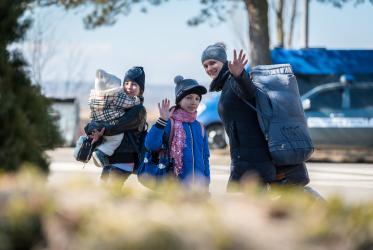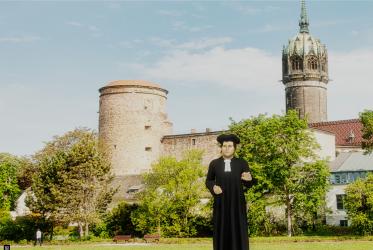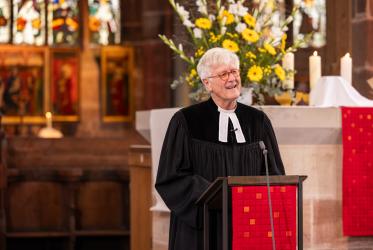Citing an “appalling record” of failure to rescue refugees at sea, the Evangelical Church in Germany, along with other faith-based and civil society groups, are calling for better solutions.
Bishop Dr Heinrich Bedford-Strohm, chairperson of the council of the Evangelical Church in Germany, announced that, as part of a broad social alliance, the Evangelical Church in Germany would send an additional ship to rescue drowning people in the Mediterranean.
”We want to send a ship. The council of the Evangelical Church in Germany decided at its recent meeting to found an association in which churches, institutions and volunteers want to bring another ship together as quickly as possible into the rescue operation,” said Bedford-Strohm. “As part of its development and humanitarian activities, the church and diakonia have been helping to save people in need every day, for decades. As long as people seeking protection in the Mediterranean drown and government action fails, we will do our utmost to support civilian rescue services."
A call for safety
With a focus on political failure to address the situation in Libya and the Mediterranean, the EKD and other groups called on the federal government and all political leaders in Europe to immediately set up a Europe-wide distribution mechanism for European Union-rescued refugees.
Christoph Hey, previously project director for Doctors Without Borders in Libya, described the situation in the detention centers as “appalling,” with poor diets and unbearable hygienic conditions. The people, including minors, are "literally crammed together and often can not go out for days,” said Hey.
From the point of view of civilian sea rescue, Barbara Held, head of operations of the Sea-Eye organization, made it clear: "Libya's people have no choice but to flee across the Mediterranean to reach safety. On overcrowded boats they find themselves in an extremely dangerous situation, but the hope of surviving this danger is greater than the prospect of never escaping the trap of the Libyan internment camps.”
Saving lives is a must, added Held. “In other words, from a humanitarian point of view as well as according to current maritime law, people in distress have to be helped without any ‘ifs’ and ‘buts.’ Vague expressions of good will not benefit the people who are fleeing now. The responsibility lies not only with Italy and Malta, but with the whole of Europe.”
Tareq Alaows, representative of the SEEBRÜCKE movement, called for a massive commitment to safe escape routes: "All people must have the right to move freely and to come to Europe safely and legally. Rescued people must all be taken to a safe harbor immediately. In Germany alone, there are more than 90 municipalities willing to accept additional refugees.”
Central demands of all participating organizations include an emergency plan for boaters, making safe havens possible, and no repatriation to Libya.







